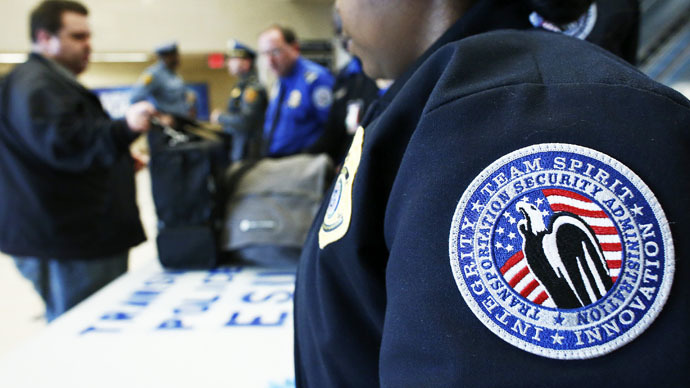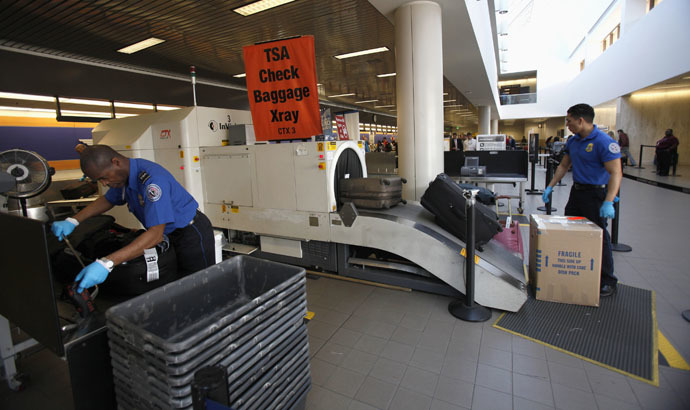TSA could start snooping on social media to speed up security screenings

The Transportation Security Agency is already well known for conducting evasive searches at American airports, but new measures may soon see the social media accounts of potential passengers being screened by TSA.
Travelers who wish to bypass TSA’s oft contentious security screenings are currently afforded the opportunity to do so by enrolling in the federal agency’s PreCheck program, an “intelligence-driven, risk-based initiative,” according to TSA, which aims to expedite security checks for frequent travelers and members of the military, among others.
But now in an effort to make that preliminary screening process even easier, TSA may soon let private companies suck up “commercial data” pertaining to passengers, the likes of which may be taken from public social media profiles, personal blogs,and other online material, according to newly filed documents.
Last month, TSA posted a request for solicitations in order to find vendors who could help “develop, deliver and deploy private sector application capabilities expanding the public's enrollment opportunities” in the PreCheck program, and an attachment to that posting is now causing a stir on the web.
READ MORE:TSA confiscated over 2,000 guns, numerous grenades at US airports in 2014
In order for third parties to be considered by TSA when it comes to implementing changes to the PreCheck program, the agency “requested that the respondents include the use of commercial data andalgorithms to validate identity and perform low-risk determinations at a high degree of confidence,” according to the attachment, when offering their services to the government.
“Commercial data,” the document continues, includes “public record data, such as criminal history and real estate records produced by federal, state and local governments; other publicly available information, such as directories, press reports, location data and information that individuals post on blogs and social media sites; and wide ranging data such as purchase information, customer lists from registration websites and self-reported information provided by consumers that is obtained by commercial data sources such as data broker.”

READ MORE:Five airline workers charged with smuggling cash past TSA
“So, the TSA is authorizing contractors to use social media posts in the screening process -- which, yes, are by default public but tend to generate more noise than signal when it comes to spotting the terrorists in PreCheck approval queue,” opined Tim Cushing, a writer for Tech Dirt who blogged about the call for proposals on Monday.
Indeed, social media postings often end up being included in a grey area of online content that may or may not be viewed as potentially dangerous, depending on who looks at it. Just last week, for instance, officers with the New York Police Department arrested a teenager who posted emojis – small, cartoonish-images – on his Facebook page. Last month, RT reported that the NYPD arrested seven men in the greater New York City area over the course of just a few days, largely as a result of messages posted on social media sites, including Facebook.
READ MORE:7 arrested for threatening to kill police – NYPD
“TSA believes private sector companies can use commercial data and secret computerized algorithms to examine a passenger’s background and predict who is, and who is not, a terrorist risk. It is so invested in this method of predicting risk that it is willing to reduce physical screening of passengers that agree to and pass these recurring background checks. If the TSA carries out its plan, it will be a massive expansion and outsourcing of the government’s citizen data mining, and it is a bad idea,” Thomas Bossert, former deputy assistant to the President for Homeland Security under President George W. Bush, recently wrote for The Hill.
“Beware what you post on social media while you are enrolled in PreCheck – it is fair game, according to the TSA’s request for proposals. It is also unclear whether the information collected by the agency’s private sector contractors could be used for other government or private purposes. The type of information collected appears to be unlimited and the government will not say what these big data companies may or may not collect. Worse, if you are rejected by a private sector contractor, you may never know why,” Bossert said.












